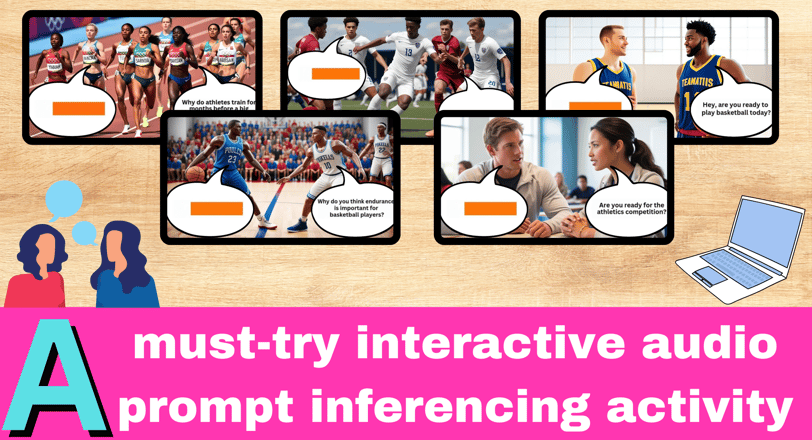"Engaging High School Students with Interactive Inference Activities 🎧📚"
"Ditch boring worksheets! Engage your 9th-12th grade students with interactive inference activities featuring audio prompts, role-play, and real-time thinking. Perfect for building critical thinking and communication skills!"
Teachers Resource Store
3/14/20251 min read


🎙️ Introduction to Innovative Learning
In the ever-evolving landscape of education, educators continuously seek methods to invigorate their teaching practices and engage students in meaningful ways. One such renowned strategy is the incorporation of interactive inference activities, specifically designed for students in the 9th to 12th grades. These activities encourage critical thinking and foster confident communication skills, which are vital for academic success and personal development.
✅ Why Choose Interactive Inference Activities?
Traditional worksheets often lose students' interest and fail to inspire deeper thought. This is particularly problematic as high school students are at a formative stage where critical thinking is paramount. The unique inference activity presented here differs from conventional resources.
🔹 Engaging Audio Prompts: Students read, listen, and actively participate, making learning more interactive.
🔹 Multi-Modal Learning: This approach resonates with today’s learners, who thrive in dynamic environments.
🎯 Components of the Inference Activity
The highlighted inference activity includes a variety of stimulating features designed to engage students in a compelling manner.
✔️ Interactive Role-Play: Can be conducted solo or in pairs, allowing students to collaborate and develop inference skills in real-time.
✔️ Built-in Timer: Creates a sense of urgency, enhancing focus and encouraging students to articulate their thoughts confidently.
✔️ Inference Through Audio: Helps students practice context, tone, and emotion, refining their ability to extract meaningful insights.
✔️ Classroom Collaboration: Encourages peer interactions and evidence-based reasoning, strengthening analytical abilities and social skills.
🚀 Conclusion: Embrace the Future of Learning
The traditional educational model is rapidly evolving, and teachers must adopt innovative resources that resonate with high school learners. By implementing this one-of-a-kind inference activity, educators can transform their teaching and equip students with valuable skills for their future.
🎧 Active listening, dynamic speaking, and critical engagement make learning fun, interactive, and effective. With audio prompts and real-time discussions, students think critically, communicate confidently, and collaborate effectively.
📚 It’s time to ditch worksheet monotony and embrace a holistic, engaging approach to learning! 🚀
